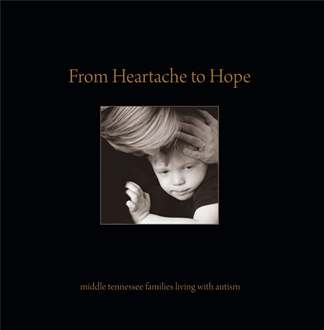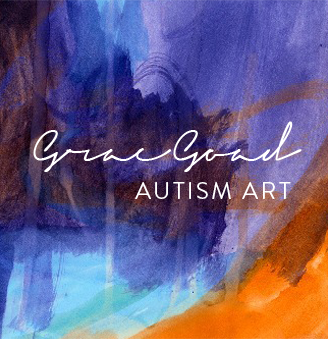Admittedly, I'm tunnel visioned. I only have one child. She is not "neurotypical." Yet, I'm able to imagine that what I'm about to communicate here could apply to parents who have children without disAbilities. And that is, it's not a sprint. It's a marathon–this thing I'm doing, we're doing, so many of us–this thing called raising a child.
From my perspective–not to lessen the challenges of raising any child–it looks to be a sprint to the finishing line when one has a child without disAbilities. They are born. They go to school. They graduate. "The days are long but the years are short," aptly writes Gretchen Rubin in her New York Times Best-selling book The Happiness Project. They go to college, maybe, and, they leave home–maybe. Eventually. Of course this is all myopic, again, eliminating the fact that we all have struggles. No one lives life free of some sort of challenge or hurdle, especially raising a child.
I typically resist war analogies because I believe how I perceive this journey is about the attitude I choose. My preference is to travel the path of least resistance and peace when possible. But, often, passivism must transform into activism to gain equal access for people with disAbilities. And, the reality of the journey is that most of us must fight nearly every step of the journey. Too frequently we must battle for the smallest rights about which others Americans do not think twice. We are not always welcomed in public and private classrooms, heart-breakingly in faith communities, and, in the general community. I realized this mere months into our our journey. Grace was refused admission into preschool at the Baptist church where she had attended Mother’s Day Out the previous year. She was diagnosed with autism midway into the year and was still not toilet trained. I still recall crouching down before the table face to face with the director, a line of registering parents behind me. My voice began to raise and escalate in pitch, as I questioned what I was hearing, confused, my eyes stinging and brimming with pregnant tears. Welcome to the Journey, Leisa. DisAbility Rejection, 101.
By law, public schools must serve our special needs children. I am pro-public school, but I wish I simply had the choice of private schooling. It's about having a choice–the freedom to choose. And while there are some private schools that focus on students with learning differences, there is, where I live, a strata of qualification, and it doesn't feel too great not to make the cut or to be unable, even, to converse at any length with an admissions counselor.
The lot of us special needs parents navigating the public school systems across America know that we are often told to go down the hall to a segregated classroom, or to another school that handles children "like that." And, yes, I know an elementary school principal who once said "like that." Even within the more accommodating schools, many of us must seek the teachers who are the most "disAbility friendly." Sometimes it's akin to choosing the lesser of two evils. Rise to middle school and then said parent has to pick and choose a number of teachers. Then there's the issue of finding the appropriate paraprofessional. I have become an extension of the Human Resources department, years ago learning I must recruit my own personnel for this extremely important position and not rely on whomever HR can dredge for the lowest paid position within the entire school system. Enter high school, and in our system, the challenge is finding classes where my daughter can meaningfully participate and learn alongside typically developing peers. And then, watching in disgust and protest, our system tears down and eliminates programs and classes such as culinary arts and cosmetology where she and others with more severe levels of disAbility had the greatest chances of learning alongside their typically developing peers.
After graduation my daughter will enter a period of community-based transition until she is 22, still within the school system. And then there will be some more governmental job training supports. It sounds good, and I am particularly grateful for the transition program. It's One. Thing. Our school system does well. But it's very patchy afterwards. And just when I see parents around me letting out a collective sigh of relief, I'm steeling myself for greater demands and peering over the cliff at a huge Unknown. Yes, my contemporaries are also seeing an unknown course in some ways. Who knows the future? But there's a little more of a road map for my peers. There are some bread crumbs left on the path for us from those who've engineered a way before us. I take those and sup gratefully, but I still face wandering a darkened path, needing more light, more, choices, more hope, more support.
This journey with my differently abled child was never a sprint to adulthood. No. It was, it is, a marathon.





Life is not a sprint, it’s a marathon is one of Mark’s (my husband’s) favorite sayings. He has taken to saying it concerning our children especially. (I also like the term you used here, “neurotypical” and would like to see the qualifications.)
God is with you and He is with Grace, giving you both strength for the journey and I am grateful that you share this journey with us.
I realized soon after my daughter was born that there would be no “collective sigh of relief” for me because being a Christian mother, there is only the “collective sigh of prayer” this is not to bemoan anything. I have been and am trying to be grateful for every stage of life (structurd by our secular society) that my children have managed to fit through without losing their minds or suffering what appears to be emotional hell.
I am incredibly grateful to God for what He is showing me about the structure of life by the secular world and His aide through it. He has opened my eyes to a lot through knowing you!
Lissa, your voice is so important! Thank you for sharing with us here and in all you do and have done with our public school system.
God bless you always!
And in my comment above, that would be Leisa (not Lissa) your voice is so important! And I will add that I am sure that many others than myself have learned and continue to learn and be aware of what our public school system is doing and is not doing and ought to be doing because of your willingness to treat this marathon as one who is running to win and becoming an arm of the HR department (and wearing many other hats!!!) Again, thank you!
Thank you, Margie, dear. This is an interesting comment of which I am not sure I fully understand. I do like the wording collective sigh of prayer. I can agree about that. Life can be prayer and prayer can be defined as meditation, in my experience. It is about connection to the Divine.
I do believe in winning for Grace and I want all our children to win. The challenge is not only the failure of the system to help us all win but that too many do not know that they can win. They give up. If I can encourage anyone to not give up, then I have succeeded.
Gentle reminder…transition might be good if you’re going straight to vocation but if you need college prep, academics AND life skills, you’ll have to choose.